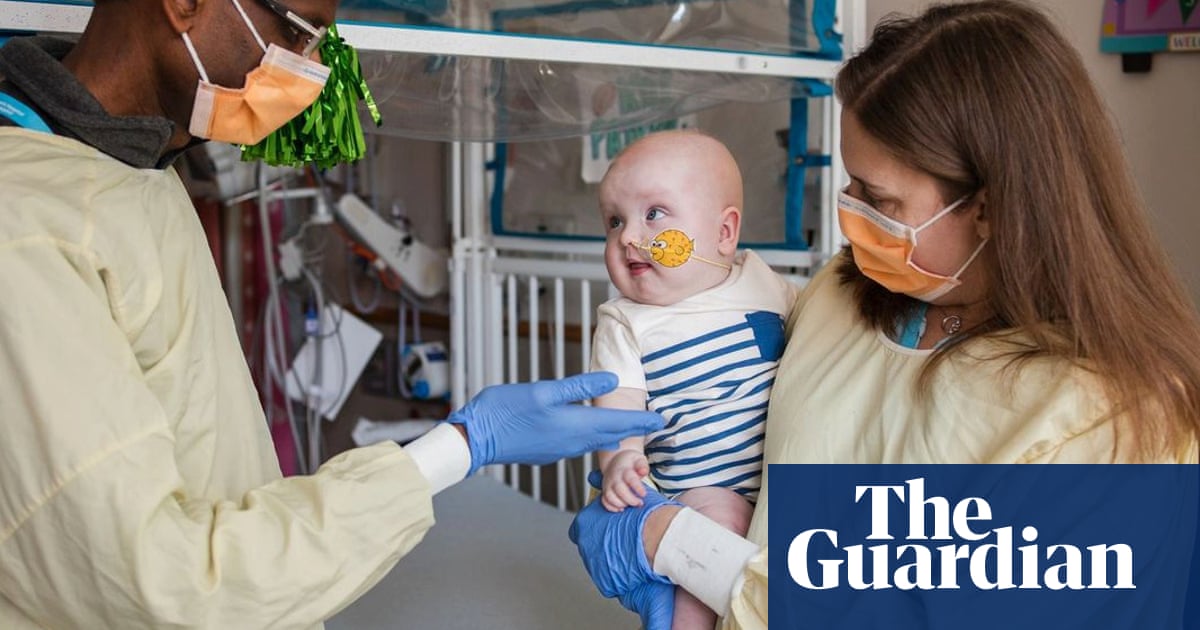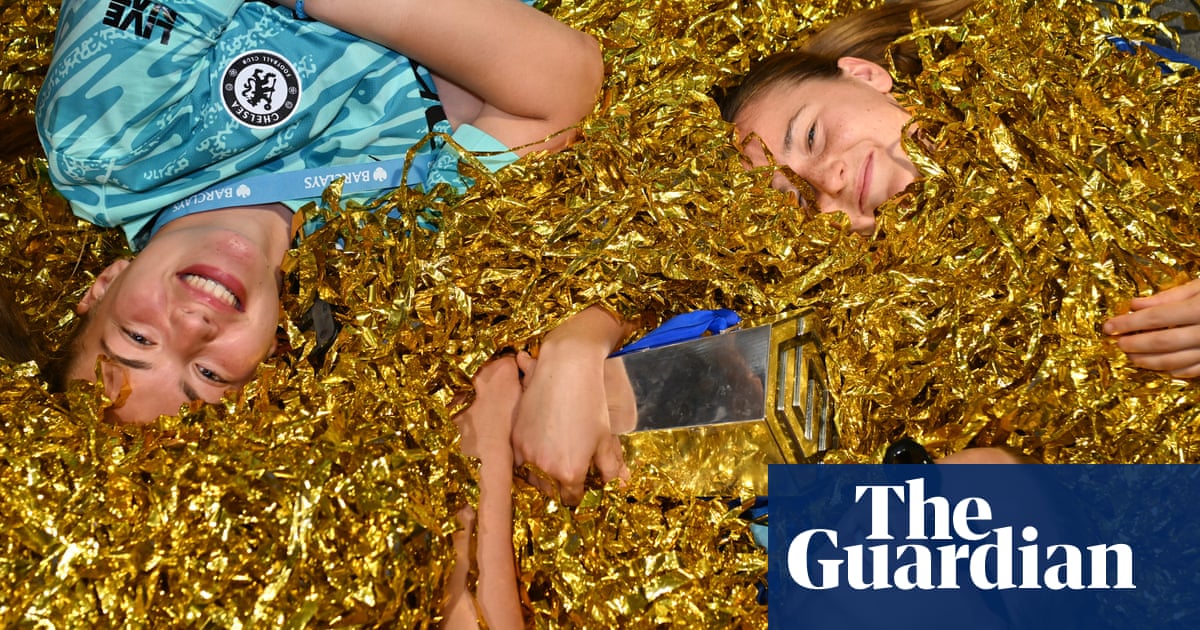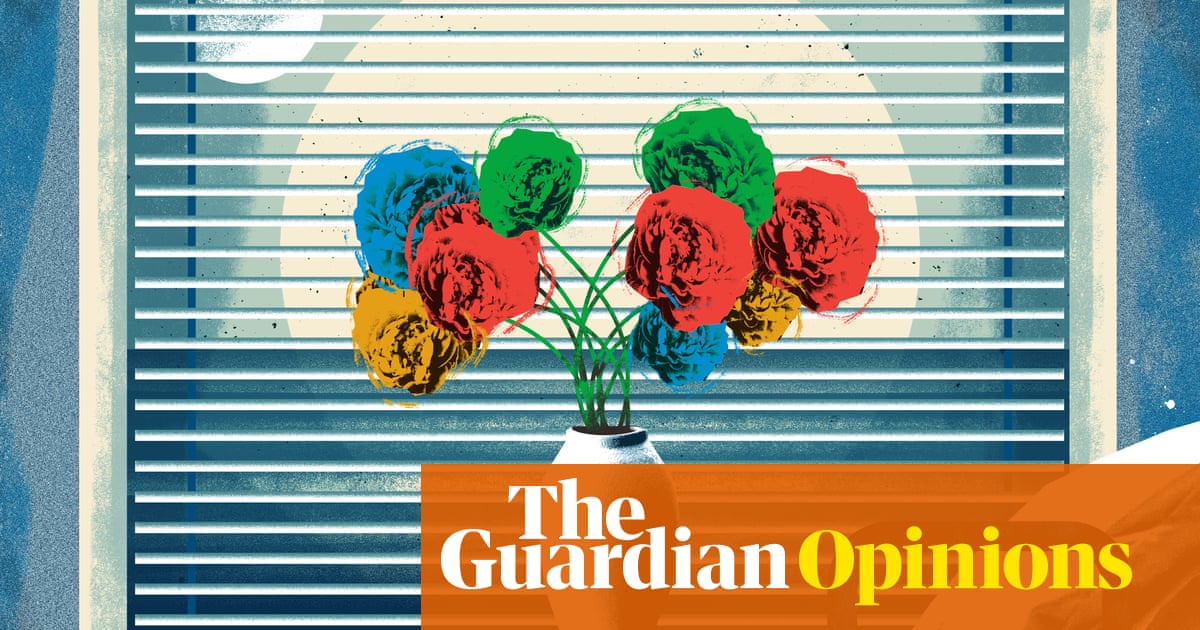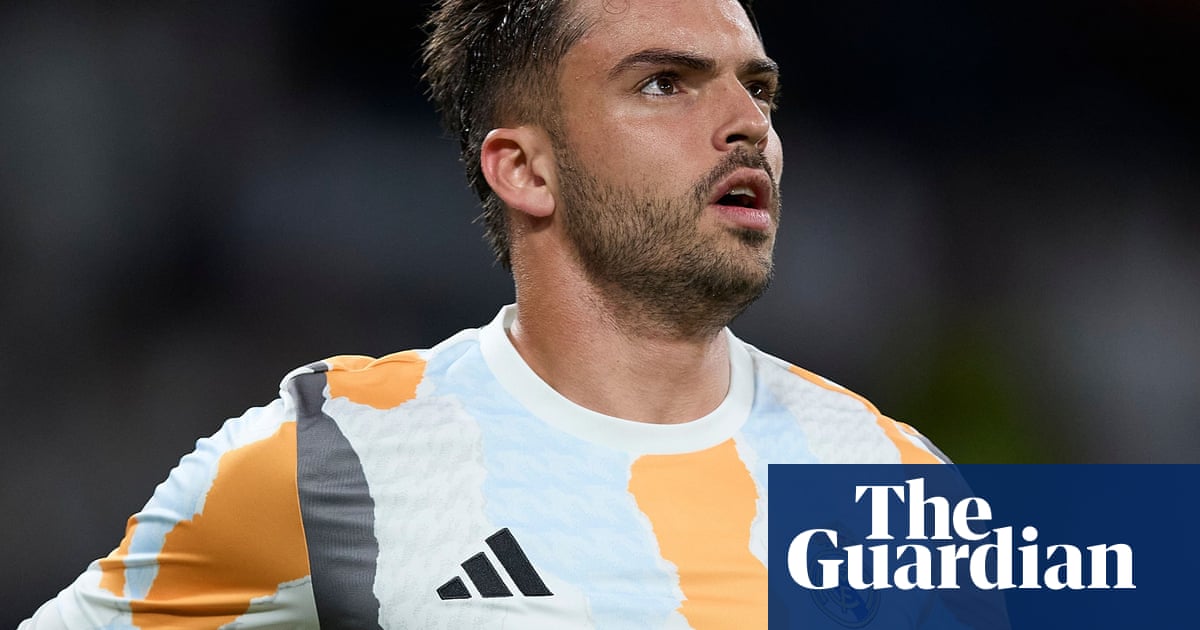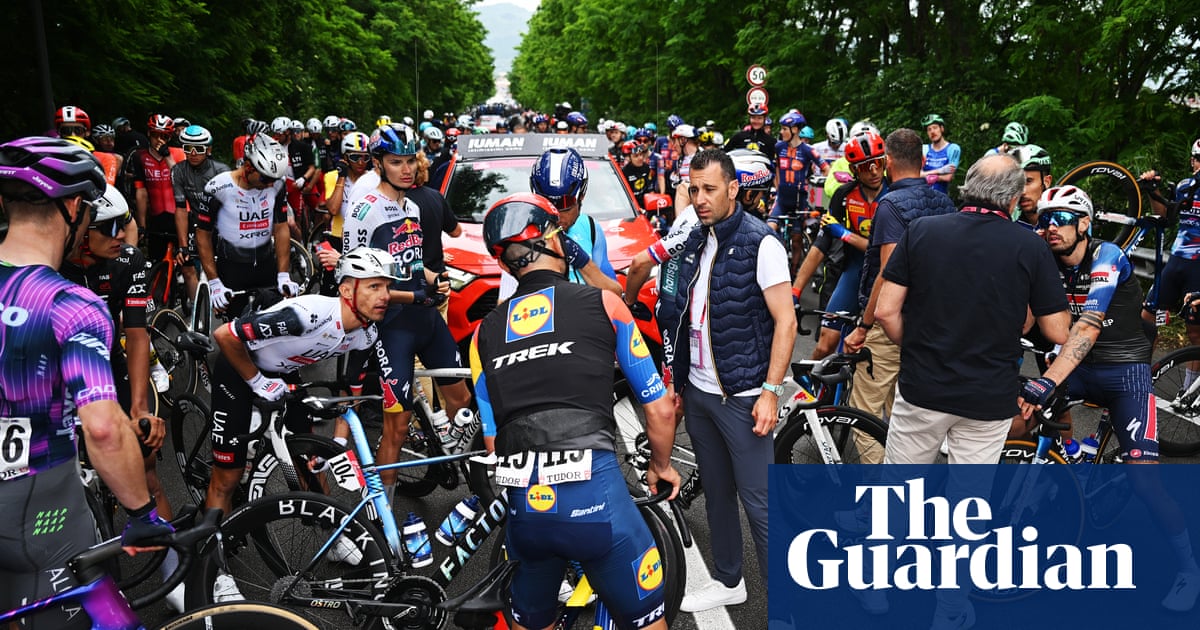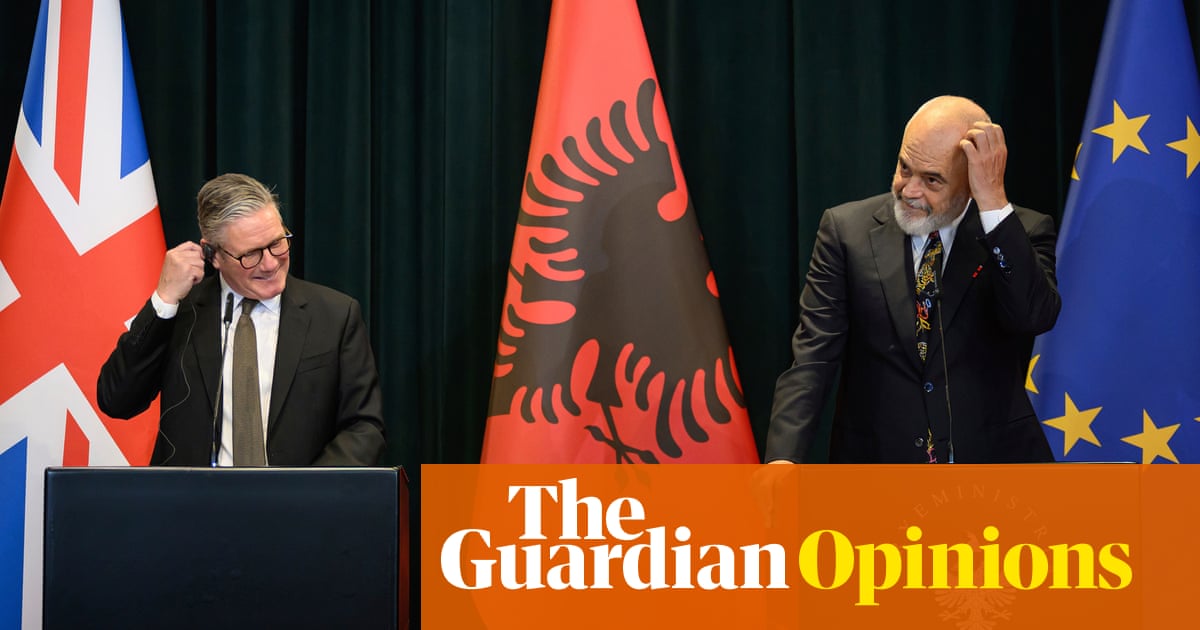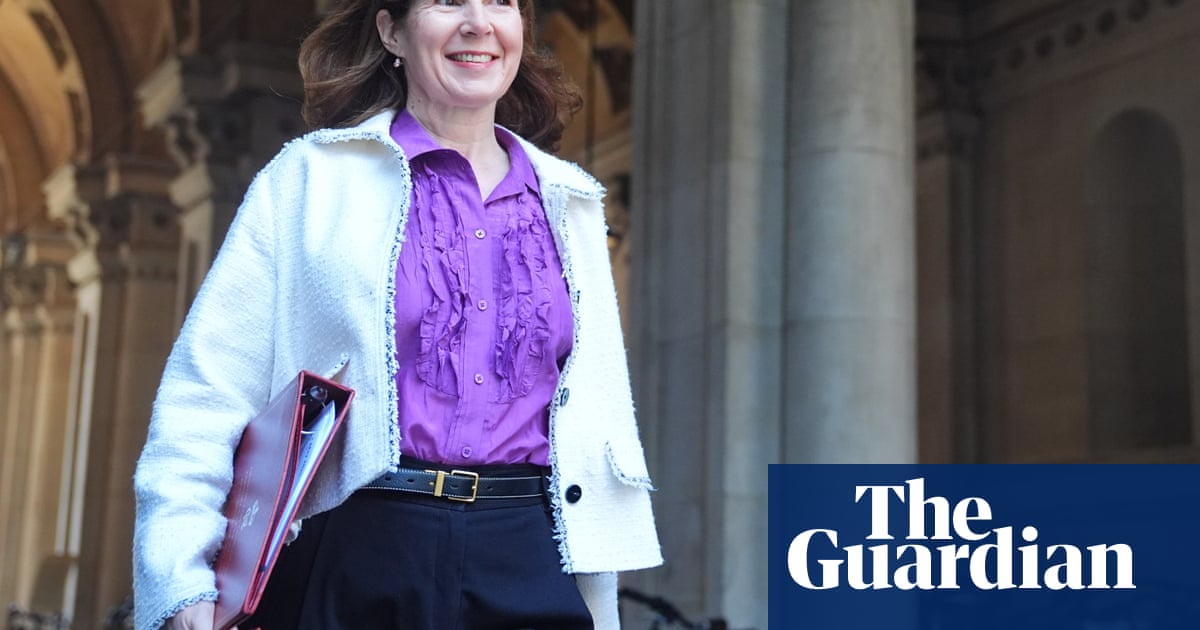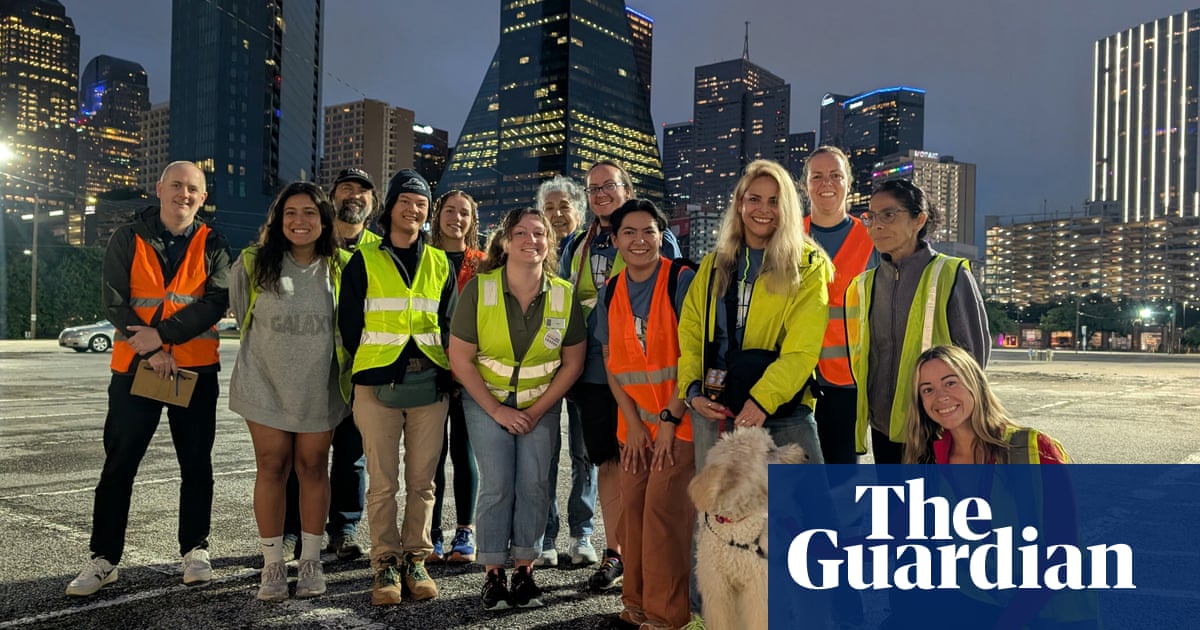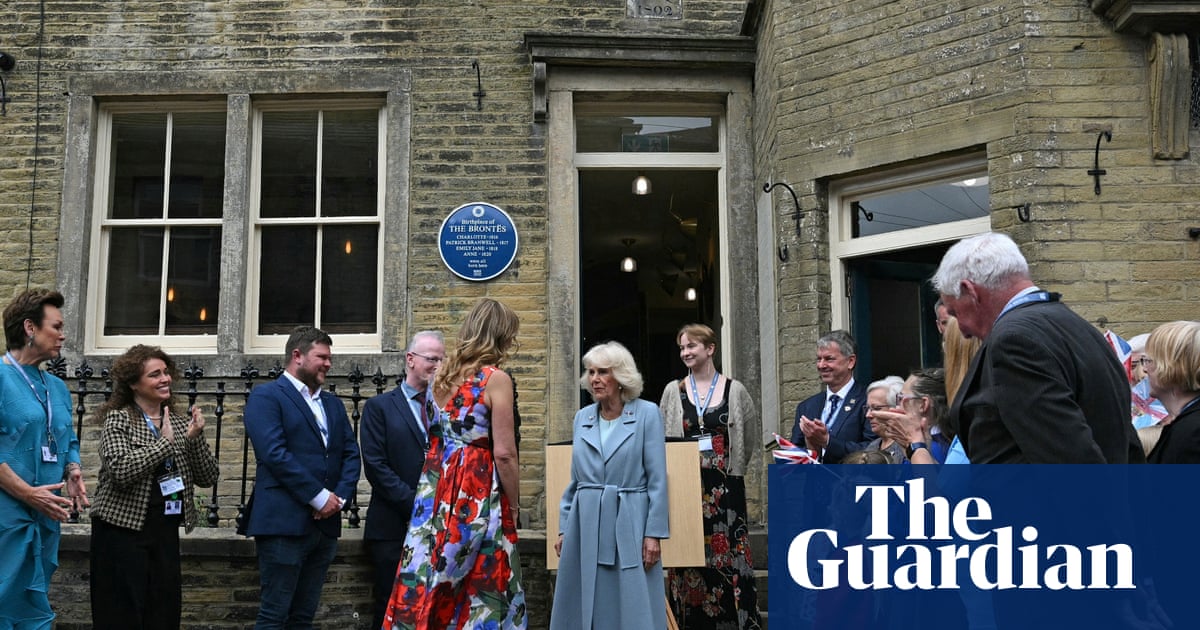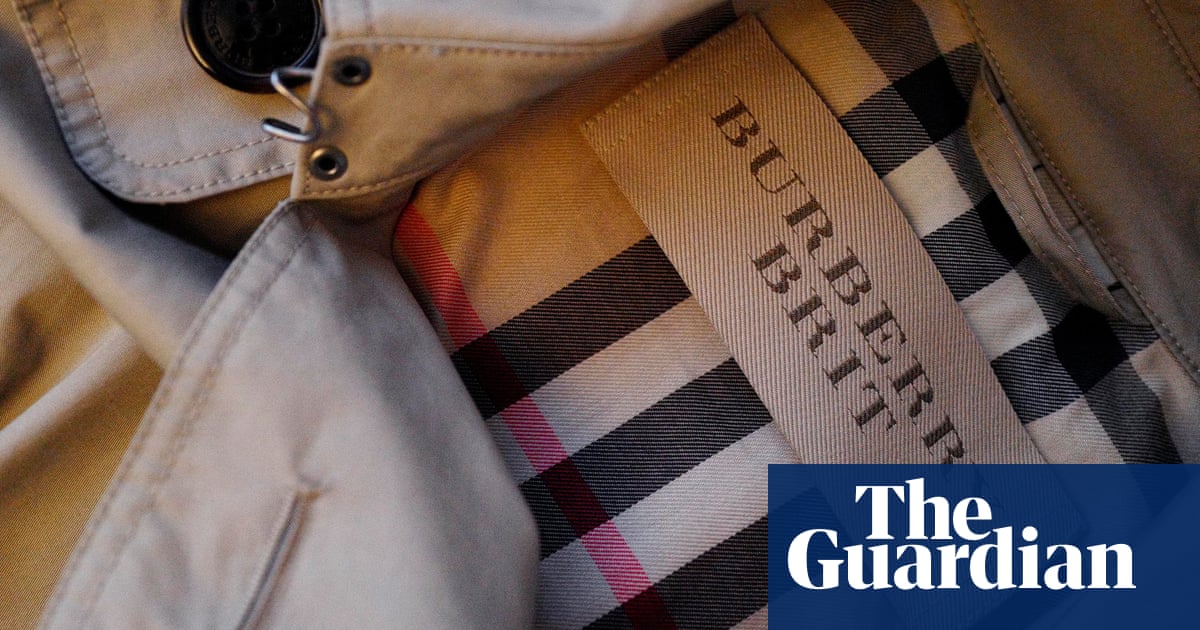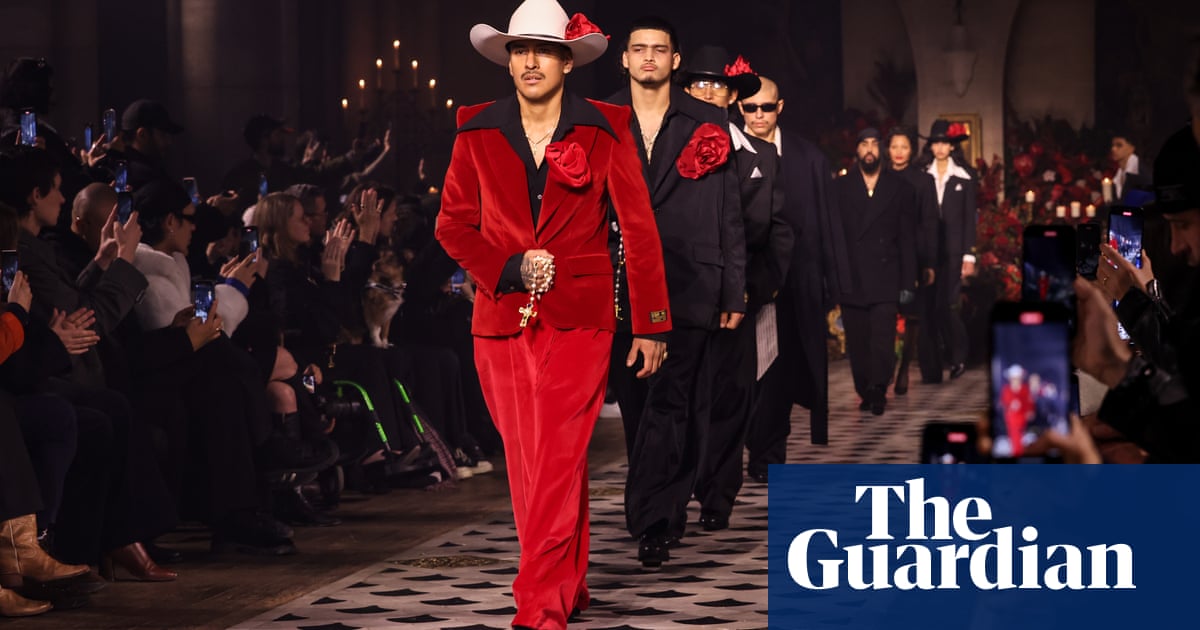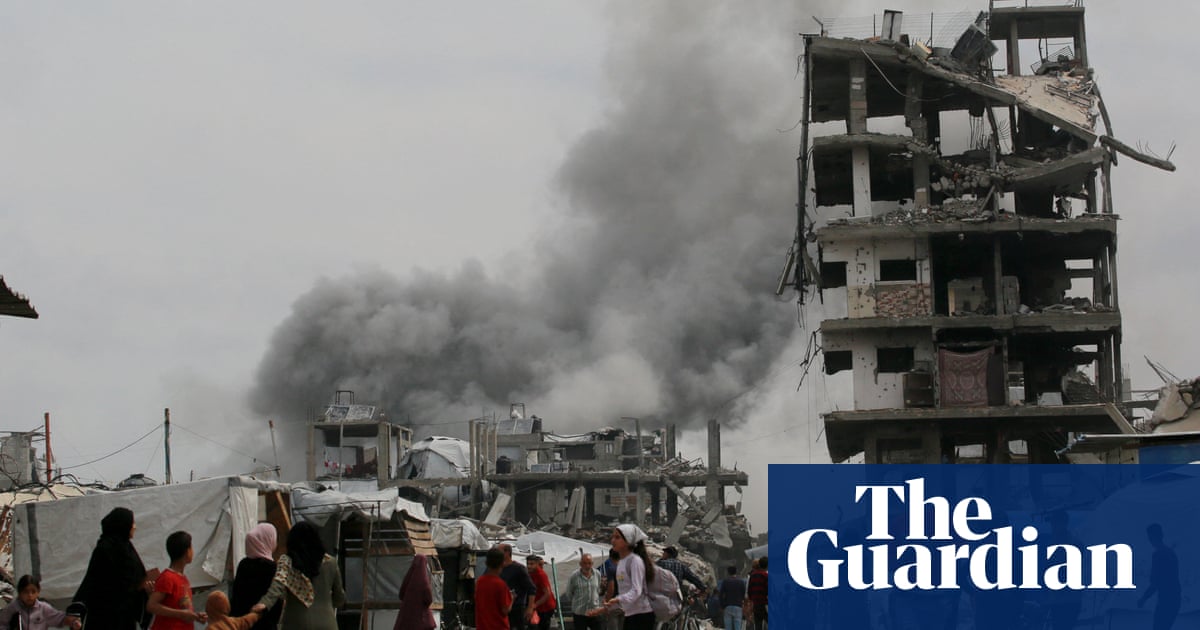Valeriy Bondar vaults a perfunctory metal fence, is handed a flare from somewhere in the melee and waves it around in the night sky. Shakhtar Donetsk have won the Ukrainian Cup, finally beating Dynamo Kyiv on penalties: light and smoke fill the air in Polissya Stadion’s south-west corner but there is something else, too. A trickle of supporters have been allowed back into many of the country’s arenas since February 2024 but more than 5,000 are packed in this time and the scenes are redolent of a different era. There has been no occasion quite like this on Ukraine’s soil for well over three years.
Fireworks have been a theme all day. Ninety minutes before kick-off in Zhytomyr several dozen Shakhtar ultras from different groups convene on a footbridge that dramatically spans the River Teteriv, towards the outskirts of this neat provincial city, and march towards the ground in a pyrotechnic haze. “It’s the first time in years that we’ve all been together in numbers like this,” says one of them, Taras, whose organisation sends equipment to soldiers at the front. About 70% of those present on the bridge are in active service, he estimates.

Most of the military personnel have been given dispensation to take a few days off and travel for the match. One, who does not give his name, says he has come straight from the trenches. Another is Kirill, a softly spoken 23-year-old who is attending his first football match since 2021. He remembers it well: a game in Mariupol between the home team, who are now on an extended pause after Russia’s occupation and devastation of the city, and Oleksandriya.
Kirill was wounded last year and has since been deployed in the direction of Toretsk, a city in Donbas where some of the fiercest fighting is taking place, to help with soldiers’ rehabilitation. Some of them have told him how Russian glider bombs flattened the stadium there while leaving their trail of destruction. He is wearing full combat uniform, the badge of the famous Azov Brigade stitched on to his left sleeve.
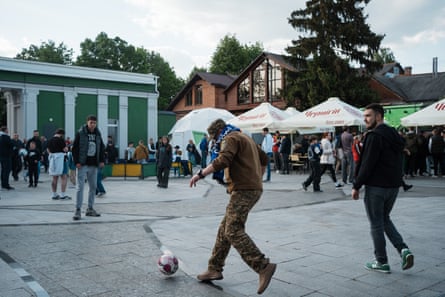
Closer to the stadium, four Dynamo fans wait next to a refreshment stand with a Shakhtar-supporting friend. They have arrived by minibus from a military base near Vovchan’sk, a nine-hour drive away. For all five, it is the first live football match since Russia’s full-scale invasion in February 2022. “It feels really unusual, I used to go all the time,” says one, holding his Dynamo scarf. Does the bitter rivalry between these two local superpowers still hold true in wartime? “Aggression must stay in the war zone,” he says. “Here, there is none.”
It already has the feel of a return to normality beyond the necessarily cautious, sterilised form domestic football has taken. The stadium, usually home to the top-flight side Polissya Zhytomyr, has been cleared to host this final because there is sufficient air raid shelter capacity in proximity. Dynamo’s home, the famous Lobanovskiy Stadion, can house only about 1,800 on those terms. Nobody can tell when a game may be interrupted by sirens; it can happen for hours at a time. The end of a purported three-day Russian ceasefire and prospect of imminent peace talks in Istanbul add to an already deeply uncertain climate.
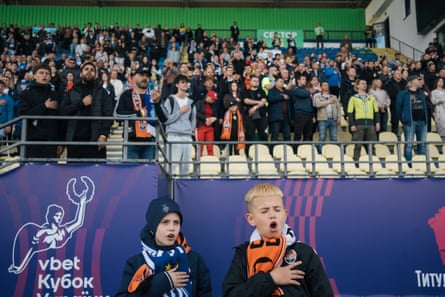
In the main stand, through a tented fanzone and around a running track, sit Roman and his family. Roman was a director of FK Sumy, an amateur league club, before the war; he joined the army when it started and now works as a sapper clearing landmines in the Kherson region. Roman, a Dynamo fan, has built a mini-vacation around the final with his wife and children, the hours of travel all worth it simply to be here. “Football is my love, my life,” he says.
On the pitch, it is Shakhtar who feel the pressure. By their standards the season has been disastrous: tiny Oleksandriya sit above them in second place and, with two games left, Dynamo are all but assured of the title. “We have the individuals, they have the team,” bemoans Yehor, packed into the Shakhtar ultras’ section. The manager, Marino Pusic, once the assistant to Arne Slot at Feyenoord, is the subject of grumbles during breaks between patriotic songs and bare-chested bouncing.
The first half is niggly and tense. There is, after all, an undercurrent of enmity. Tackles thud in, some of them ugly; the Shakhtar right-back Vinicius Tobias shoves Vladyslav Dubinchak and the thought occurs that the presence of a large crowd, quite aside from the stakes, has given this “clasico” its edge back. But it needs some quality too and shortly before half-time Andriy Yarmolenko, now 35 and still marauding for Dynamo, clips a smart left-footed finish past Dmytro Riznyk.
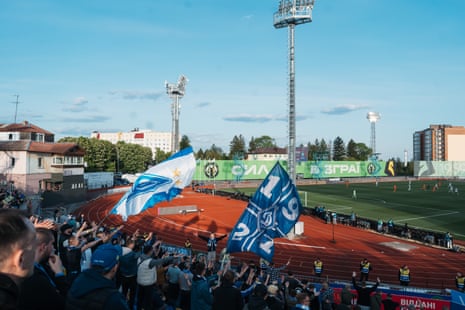
At the interval the 15-year-old Sviatoslav Vakhovnan, who is sitting near halfway, holds up his poster of Marlon Gomes and hopes for inspiration from Shakhtar’s Brazilian midfielder. Here, football will always be a story within the story. Sviatoslav has travelled with Children of Heroes, a charity supporting youngsters who have lost parents as a result of Russia’s aggression. Nowadays he plays for the SK Kyiv academy. His father was killed while delivering hot meals and humanitarian aid to Bucha. “Ukrainian football symbolises our confidence that we’re a whole family who can achieve victory together,” he says.
Gomes and Shakhtar perk up, perhaps sparked by a brawl that erupts early in the second half. Kaua Elias, another in their continuing line of imports from Brazil, equalises. A few monkey chants are audible from Dynamo’s ultras; showing that uniting behind a just cause in wartime does not always equate to a consistent moral compass.
Under the gathering dusk, two Shakhtar supporters climb high above their peers and set fire to a Russian flag. It is at once a violent and poignant spectacle. The only meaningful victory here can be Ukraine’s ultimate triumph. “But right now, all of us lose,” Yehor says, motioning to the hundreds in orange and black attire. “These people are my friends and so many fight for us. But we keep losing our friends, and all of them have wives, mothers and children.”
The stadium is packed now, its energy thrumming, its colour a throwback. Extra time is played out and then, before thoughts can turn to dashing away in time for the midnight curfew, Riznyk saves from Oleksandr Karavayev in the shootout. Bondar joins in with the firework display; Pusic, whose exit this summer still seems inevitable, is given the bumps by his players. The ultras sing songs of home and hope. For a few hours this game has, as much as can ever be possible, offered up its own world.
Taras feels the moment’s significance amid the happiness and exhaustion. “Like a piece of a past life,” he says. The constant strain of the present is unlikely to abate quickly but everyone here has, at least, been granted a new footballing memory to cherish.

 4 hours ago
5
4 hours ago
5
